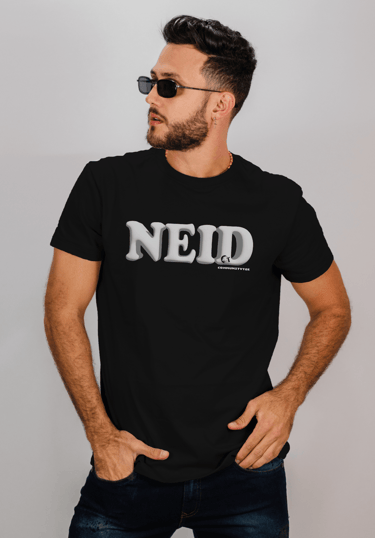Envy
and How to Deal with It
MOTIVATION
In my latest blog about making mistakes, I wrote that there are rarely truly malicious intentions directed at me, but rather most are due to misunderstandings or unforeseeable events. I received several DMs telling me about contrary experiences. I am probably in a fortunate position because I distanced myself from negative people a long time ago. As with all unpleasant topics in life, I am convinced that a problem or an unpleasant situation can only be solved if one understands the reasons behind it. In many cases, it is also helpful to put oneself in the other person's shoes. This blog aims to analyze why there are people who want to harm others. If you know the backgrounds and can build a certain understanding, it will be easier to deal with these people and, above all, to protect yourself from negative thoughts towards others and even turn these into something positive. The main reason why people intentionally or unintentionally harm others is simply envy!
Envy is one of the strongest emotions. The human tendency towards envy is a constant and innate characteristic. Envy often arises through conscious or unconscious comparisons with others. It is a feeling of inferiority, frustration, and injustice. Envy can lead to mental and physical health problems and can harm our relationships, literally consuming us with our envy. A study with monkeys showed that they valued their own rewards less when a fellow species member was also rewarded. This is because the distribution of resources automatically means there is less available in the end. The findings indicate that the brain is programmed to constantly monitor the social environment and evaluate the success of others. Excessive success can endanger one's own existence. It was also found that humans carry this programming, and it varies among individuals, mainly due to the experiences we had in childhood and the upbringing we received. Envy can also provoke defensive reactions in us, such as ingratitude, irony, contempt, and narcissism.
A possible way to deal with envy is to reinterpret our perception. Instead of focusing on what we do not have, we should learn to appreciate the efforts and sacrifices behind the achievements of others. It is important to cultivate gratitude and humility to expand our perspective and protect ourselves against the destructive effects of envy. Ultimately, envy is a matter of attitude. Dealing with envy requires a deep understanding of our own emotions. By learning to control our reactions to the success of others, we can find a path to personal development and healthier social relationships. Envy does not have to be our enemy. Properly understood and channeled, it can be a powerful drive for growth and change. Instead of begrudging someone for something because we are unable to achieve the same, we can set ourselves the goal to learn and grow. In Asian culture, this is common practice, and one is raised with the education to become better than the master. I can imagine you're thinking of the "Kung-Fu Master" right now :-). Even though this falls into the category, my Asian friends tell me that in their education, envy and arrogance were always punished. Instead, one should admire successful people. Visible effects of this kind of education can be seen in the achievements. There are many examples, think of electric car manufacturers, chip makers, etc.
Zum Schluss zu Matzes Praxistipps: Wir Menschen sind im Grunde nur Tiere, die von angeborenen Instinkten und Hormonen gesteuert werden. Manche lassen sich von diesen Urinstinkten leiten und handeln danach, ohne Rücksicht auf Verluste. Diese Menschen erkennt Ihr in der Regel schnell, und mein Tipp an Euch ist es, Euch von diesen Menschen zu distanzieren oder die Interaktion auf ein Minimum zu reduzieren. Was uns Menschen von den Tieren unterscheiden sollte, ist unser freier Wille und die Fähigkeit zu entscheiden, wie wir auf externe und interne Einflüsse und Reize reagieren. Die einzig richtige Emotion negativen Menschen gegenüber ist Mitleid. Zu bemitleiden ist die Tatsache, dass diese Menschen die Entwicklung vom Affen zum Menschen noch nicht geschafft haben. Wie im Blog analysiert, ist Neid aber in uns allen vorprogrammiert und war wahrscheinlich in der Steinzeit ein notwendiger Mechanismus, um zu überleben. Daher ist es auch nicht verwerflich, wenn wir ab und zu Neid fühlen. Aber anstatt jemanden zu beneiden, können wir uns entscheiden, denjenigen zu bewundern und uns zum Ziel machen, das Gleiche oder sogar mehr zu erreichen. Wenn das nicht möglich ist, gibt es nichts Schöneres, als sich mit und für andere zu freuen. Besonders wir hier in Europa leben im Grunde im Überfluss. Klar, es gibt immer Leute, die mehr haben, aber es liegt an uns zu beurteilen, was wir aus dieser Tatsache machen. Denn nur weil einer etwas mehr hat, haben wir deswegen nicht weniger. Und wenn das mal aus irgendeinem Grund doch sein sollte, dass um begrenzte Ressourcen gekämpft wird, liegt es an uns, uns weiterzuentwickeln. Keiner verbietet es uns, neue Fähigkeiten anzueignen oder auf einen besseren Job/Partner/Wohnung/usw. hinzuarbeiten. Zum Schluss ein Spruch einer asiatischen Mutter: "Guck immer nach oben und arbeite hart und hilf allen, die unten stehen und Schwierigkeiten haben. Nur wenn alle sich gegenseitig unterstützen, wird es allen gut gehen… stay tuned.
sources and related links (last visit 09.2.2024):
PSYLEX: Psychologie des Neides





